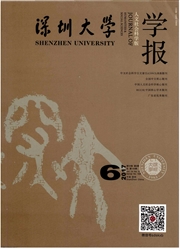

 中文摘要:
中文摘要:
"家庭危机"与西方传统主流哲学话语中的"无家性"问题关联。西方"无家性"哲学是以"知识—存在"为存在论,以"精神—伦理"为伦理学核心的体系,其缺陷在于离开与人生命天然相连的家庭,囿于知识、精神话语表达人伦情感。从身体语言思考哲学的"无家性"问题,就会发现中国传统哲学因"重身"进而"重家",继而形成"天下一家"的思想;而西方传统主流哲学因"灵-肉"二分,并把身体对象化为没有灵性的物质实体,进而导致理论上的"轻家"、"祛家",以至于灵魂漂泊,"无处安家"。要重建以家庭为中心的现代文化,中国传统哲学"身-家-天下"的一体化范式,可望提供有益的参照。
 英文摘要:
英文摘要:
"Family crisis" is related to the problem of "homelessness" in the mainstream discourse of traditional Western philosophy. The Western philosophy of "homelessness" is a system whose ontology is basically the knowledge of being, and whose ethies is grounded solely in spirit. It talks about human feeling with either epistemological discourse or spiritual discourse but never with the language about family. This created serious problems. Looking at the problem of homelessness through the lens of the metaphorical language of human body, we find that the primary concern of traditional Chinese philosophy is bodily life of human being; it then extends its concern to family and eventually forms an idea of "the unified family under the heaven." Western philosophy, by contrast, starts with the mind-body dichotomy, and tends to treat human body as a mere soulless material object. Family is given no important place in Western theoretical thinking. What is more, it is systematically erased from the main stream discourse. The homeless human soul that is always in exile can be seen as the product of this kind of thinking. The "body-family-world" model of Chinese philosophy will certainly serve to reestablish the modern culture that centers on family.
 同期刊论文项目
同期刊论文项目
 同项目期刊论文
同项目期刊论文
 期刊信息
期刊信息
